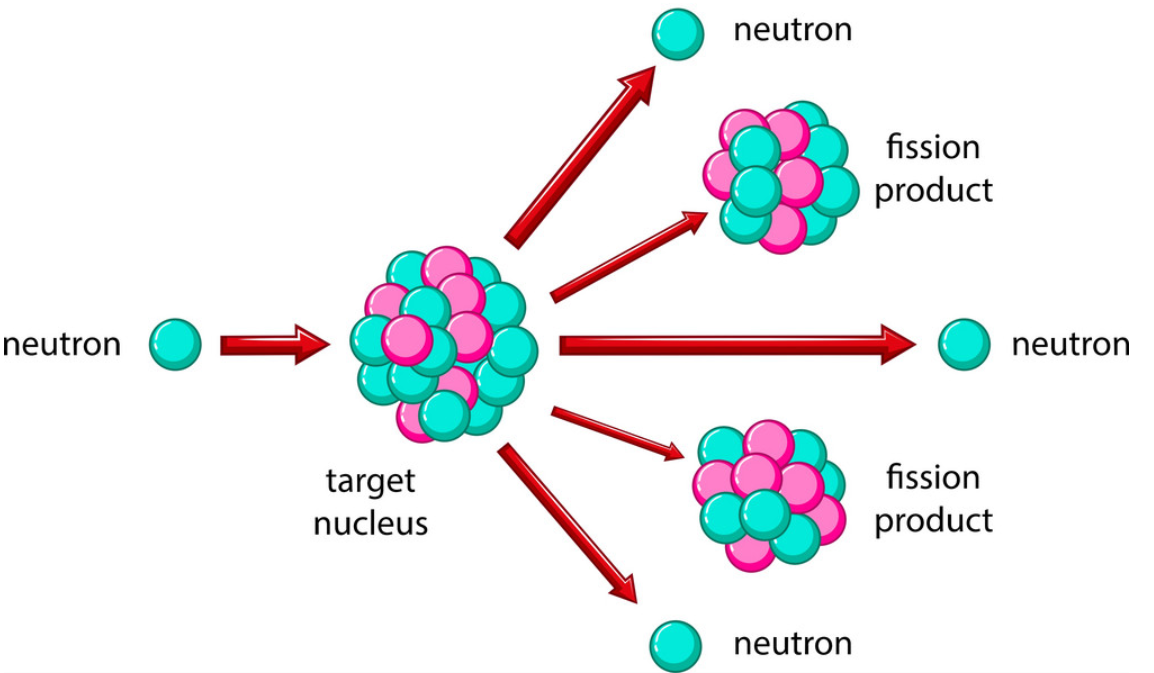Nuclear fission is an important process in nuclear physics, where the atom’s nuclei are splitting into two or more smaller nuclei, as the fission products, and as some by-products usually. Fission is an important form of elemental transmutation. In the byproduct’s electrons, protons, and neutrons are included. It also includes the photons in the form of gamma rays. Some other nuclear fragments such as alpha particles and beta particles are also associated. Nuclear fission is the subdivision of the nucleus of heavy atoms such as that of plutonium or uranium into the fragments having the equal masses.

For the heavy elements, the fission is an exothermic reaction and a substantial amount of useful energy can be released as the kinetic energy of fragments and beta rays. This energy causes the heating of bulk material where the process of fission is taking place. The discovery of nuclear fission is not much old, but it is linked to the atomic era. The discovery of the nuclear fission began soon with the discovery of the neutron by James Chadwick.
Nuclear Fission is Both Evil and Good
The potential of nuclear fission for good and evil work has provided many bases for the economic, sociological, political and scientific advances, but it has also raised various concerns. Even in the scientific perspectives, nuclear fission has given rise to many complexities, and puzzles. So, still, there is a need for complete exigent research and theoretical observation.
Explanation
In the reaction of nuclear fission, the nucleus is breaking into two nuclei, which are lighter than the original one. In some cases, this process can take place spontaneously. It can also be induced by the exciting nucleus with various particles such as protons, deuterons, neutrons, or alpha particles. For exciting the nucleus, the gamma rays, and electromagnetic radiation can also be used. In the fission process, there is also emission of neutrons, and then they can induce the fission reaction in the nearby nucleus that is having the fissionable material. In this way, more neutrons are released, and they induce the fission in the more nucleus. A chain reaction is started that causes a larger number of nuclei to undergo fission and an enormous amount of energy is released. If this reaction is controlled in the nuclear reactor, then it can be much beneficial for society. But if it is uncontrolled, then it acts like an atomic bomb and can cause huge destruction.